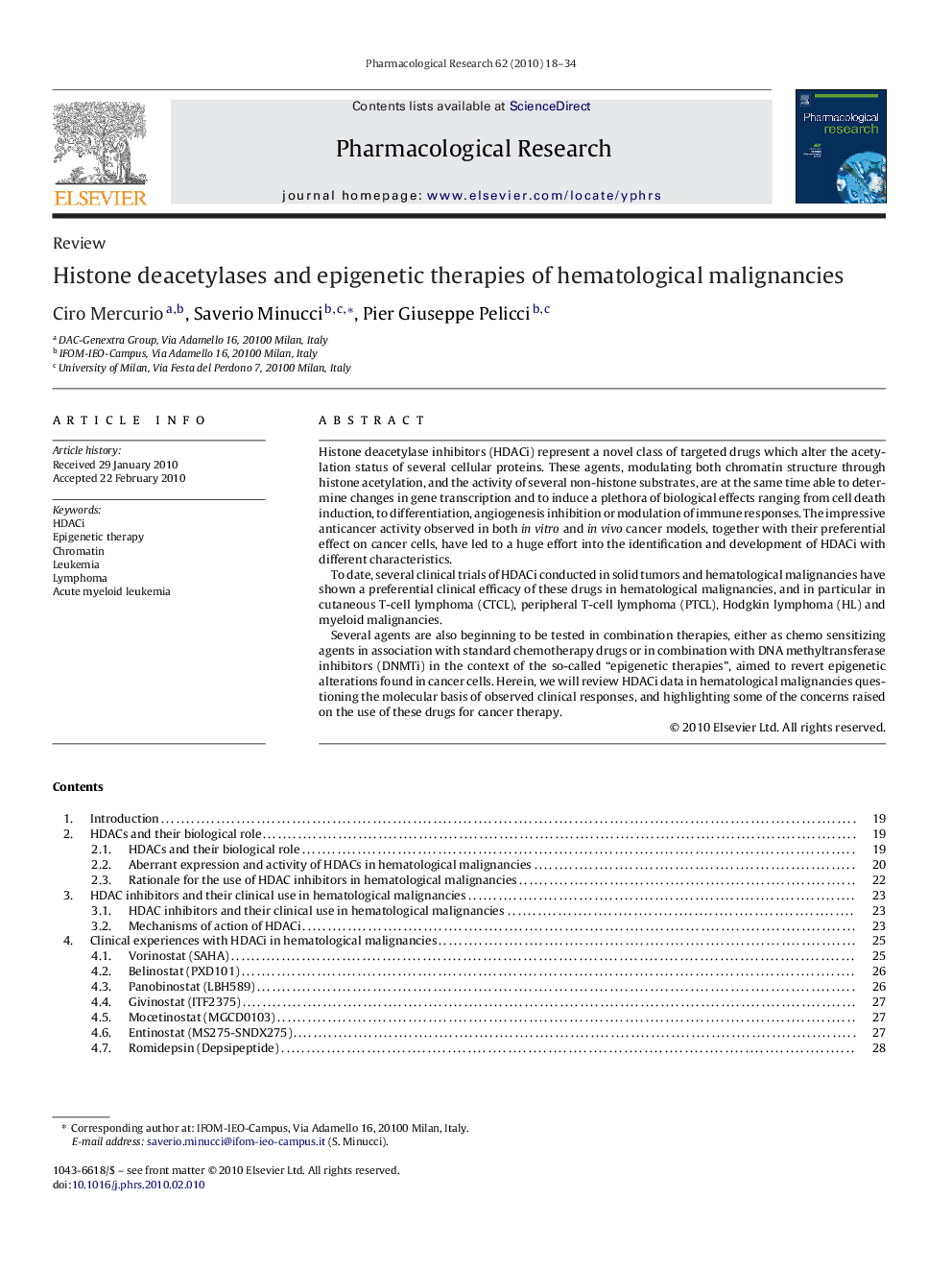| Article ID | Journal | Published Year | Pages | File Type |
|---|---|---|---|---|
| 2562789 | Pharmacological Research | 2010 | 17 Pages |
Histone deacetylase inhibitors (HDACi) represent a novel class of targeted drugs which alter the acetylation status of several cellular proteins. These agents, modulating both chromatin structure through histone acetylation, and the activity of several non-histone substrates, are at the same time able to determine changes in gene transcription and to induce a plethora of biological effects ranging from cell death induction, to differentiation, angiogenesis inhibition or modulation of immune responses. The impressive anticancer activity observed in both in vitro and in vivo cancer models, together with their preferential effect on cancer cells, have led to a huge effort into the identification and development of HDACi with different characteristics.To date, several clinical trials of HDACi conducted in solid tumors and hematological malignancies have shown a preferential clinical efficacy of these drugs in hematological malignancies, and in particular in cutaneous T-cell lymphoma (CTCL), peripheral T-cell lymphoma (PTCL), Hodgkin lymphoma (HL) and myeloid malignancies.Several agents are also beginning to be tested in combination therapies, either as chemo sensitizing agents in association with standard chemotherapy drugs or in combination with DNA methyltransferase inhibitors (DNMTi) in the context of the so-called “epigenetic therapies”, aimed to revert epigenetic alterations found in cancer cells. Herein, we will review HDACi data in hematological malignancies questioning the molecular basis of observed clinical responses, and highlighting some of the concerns raised on the use of these drugs for cancer therapy.
Graphical abstractFigure optionsDownload full-size imageDownload as PowerPoint slide
